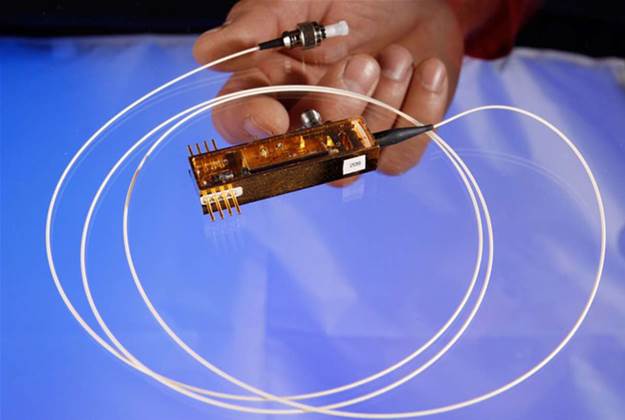Increasingly powerful quantum computers could jeopardise cryptographic currencies in as little as ten years, researchers have warned.

Quantum computers are still in their infancy, but are expected to develop rapidly and be able to break the cryptographic signatures used by virtual currency Bitcoin within a decade.
Fast quantum computers could lead to attackers stealing funds from digital currencies without being detected, the Quantum Resistant Coin (QRC) group of researchers from the University of Technology Sydney's Centre for Quantum Software and Information said.
Their paper Quantum Attacks on Bitcoin and how to protect against them [pdf] estimates that the elliptic curve cryptographic signatures used by Bitcoin are at risk of being broken as early as 2027 by a quantum computer.
These digital public key signatures are used in Bitcoin to prove ownership of units of the currency.
The cryptographic proofs-of-work used to verify transactions in Bitcoin's distributed ledger database, however, will be more resistant against faster quantum computers, the researchers said.
The specialised application specific integrated circuits (ASICs) used by Bitcoin miners are extremely quick compared to the estimated clock speed of quantum computers, leaving them relatively safe from quantum computer attacks in the immediate future.
But the researchers said the crypto currency community should start preparing for attacks on their digital assets.
“Many existing Bitcoin accounts and all new transactions will be at risk within ten years, so we need to start thinking about solutions now,” Dr Tomamichel said.
The researchers suggested using proofs-of-work such as Momentum, Cuckoo Cycle and Equihash instead of Bitcoin's current HashCash algorithm to secure against attacks perpetrated through faster quantum computers.
Such proofs-of-work "cannot be accomplished significantly faster with a quantum computer than with a classical computer," the researchers said.
Likewise, using lattice-based signatures such as DILITHIUM would help secure Bitcoin against quantum computing-based attacks, they said.




_(23).jpg&h=140&w=231&c=1&s=0)
.png&h=140&w=231&c=1&s=0)





 iTnews Executive Retreat - Security Leaders Edition
iTnews Executive Retreat - Security Leaders Edition
 iTnews Benchmark Awards 2026
iTnews Benchmark Awards 2026
 iTnews Cloud Covered Breakfast Summit
iTnews Cloud Covered Breakfast Summit
 The 2026 iAwards
The 2026 iAwards












_(1).jpg&h=140&w=231&c=1&s=0)



